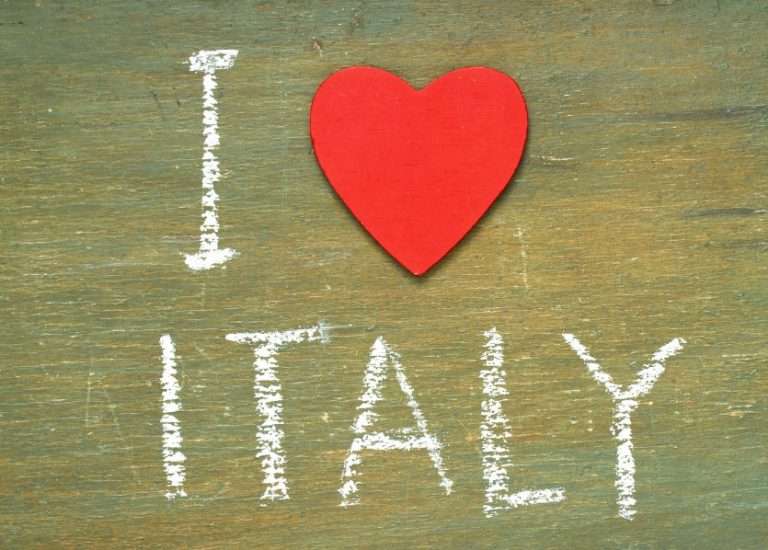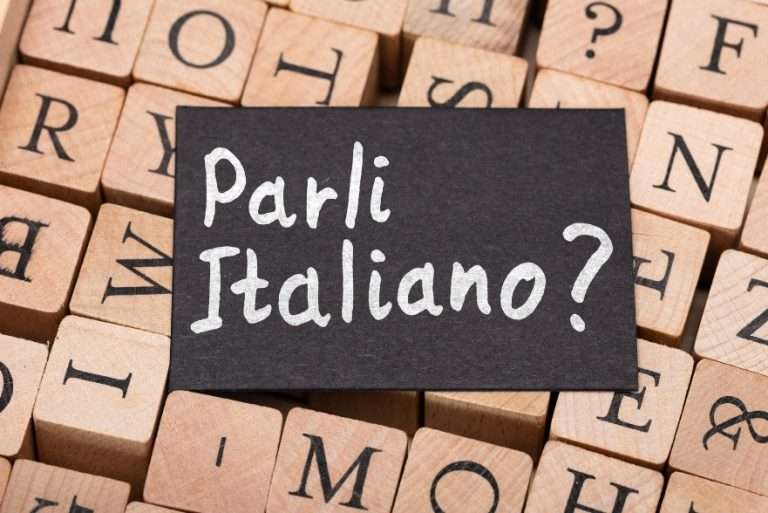100 Italian Animal Names: Expand Your Vocabulary
If you’re a fan of Italy and its captivating culture, learning Italian animal names is an entertaining way to deepen your connection with the country’s rich lifestyle.
Discover Italian Animal Names: Which Ones Will You Learn?
To help you with this journey, we’ve compiled a comprehensive list of 100 Italian animal names and their English translations, spanning various categories, including domestic animals, farm animals, zoo animals, sea creatures, birds, and wild animals.
Additionally, we’ve included a delightful collection of 23 animal-related idioms and slang expressions to enrich your Italian vocabulary. So, let’s dive in and explore the beauty of Italy through its diverse animal kingdom.
Pets and Domestic Animals: Italian Names for Your Furry Friends

Pets and domestic animals play a significant role in the Italian way of life. Italians are known for their love and care for animals, treating them as important members of their families. Let’s take a look at some common Italian pet and domestic animal names and their English translations:
- Cane (m) – Dog
- Gatto (m) – Cat
- Criceto (m) – Hamster
- Coniglio (m) – Rabbit
- Pappagallo (m) – Parrot
- Pesce rosso (m) – Goldfish
- Cucciolo (m) – Puppy or Kitten
- Tartaruga (f) – Turtle
- Gattino (m) – Kitten
- Canarino (m) – Canary
- Cavia (f) – Guinea pig
Italian Farm Animal Vocabulary
Farming and agriculture have long been at the heart of Italian culture. The Italian countryside is bustling with various farm animals, from small family-owned farms to larger agricultural enterprises. Here’s a list of Italian farm animal names and their English translations:
- Gallo (m) – Rooster
- Gallina (f) – Hen
- Maiale (m) – Pig
- Mucca (f) – Cow
- Capra (f) – Goat
- Pecora (f) – Sheep
- Cavallo (m) – Horse
- Asino (m) – Donkey
- Tacchino (m) – Turkey
- Anatra (f) – Duck
- Topo (m) – Mouse
- Bue (m) – Ox
- Toro (m) – Bull
- Pollo (m) – Chicken
- Agnello (m) – Lamb
Zoo Animals in Italian: A Walk on the Wild Side

Italy has several renowned zoos and wildlife conservation centers that protect and showcase the country’s diverse fauna. From the mighty lion to the graceful giraffe, here are some Italian zoo animal names along with their English translations:
- Leone (m) – Lion
- Tigre (f) – Tiger
- Giraffa (f) – Giraffe
- Elefante (m) – Elephant
- Ippopotamo (m) – Hippopotamus
- Scimmia (f) – Monkey
- Gorilla (m) – Gorilla
- Scimpanzé (m) – Chimpanzee
- Panda (m) – Panda
- Rinoceronte (m) – Rhinoceros
- Koala (m) – Koala
- Zebra (f) – Zebra
- Orso (m) – Bear
- Leopardo (m) – Leopard
- Camaleonte (m) – Chameleon
- Dromedario (m) – Dromedary
- Ghepardo (m) – Cheetah
- Giaguaro (m) – Jaguar
- Lince (f) – Lynx
- Orango (m) – Orangutan
Marine Animals in Italian: Dive into the Deep Blue
Italy is a paradise for sea life enthusiasts with its long coastline and rich marine life. The country’s coastal regions offer a glimpse into the vibrant world beneath the waves. Discover some Italian sea animal names and their English translations below:
- Pesce (m) – Fish
- Squalo (m) – Shark
- Balena (f) – Whale
- Delfino (m) – Dolphin
- Polpo (m) – Octopus
- Medusa (f) – Jellyfish
- Cavalluccio marino (m) – Seahorse
- Aragosta (f) – Lobster
- Granchio (m) – Crab
- Calamaro (m) – Squid
- Gambero (m) – Shrimp/Prawn
- Stella Marina (f) – Starfish
- Foca (f) – Seal
- Ostrica (f) – Oyster
- Otaria (f) – Sea lion
- Pesce rosso (m) – Goldfish
- Tricheco (m) – Walrus
Birds in Italian: Soaring High with Feathered Friends

Italy’s diverse bird species reflect the country’s varied landscape, from the Alpine peaks to the Mediterranean coastline. Many of these birds hold cultural and historical significance in Italian folklore and art. Here are some Italian bird names and their English translations:
- Aquila (f) – Eagle
- Corvo (m) – Crow
- Gabbiano (m) – Seagull
- Passero (m) – Sparrow
- Rondine (f) – Swallow
- Pinguino (m) – Penguin
- Colombo (m) – Pigeon
- Cigno (m) – Swan
- Falco (m) – Falcon
- Gufo (m) – Owl
- Piccione (m) – Pidgeon
- Cicogna (f) – Stork
- Condor (m) – Condor
- Fagiano (m) – Pheasant
- Pappagallo (m) – Parrot
- Pavone (m) – Peacock
- Pellicano (m) – Pelican
- Tacchino (m) – Turkey
- Uccello (m) – Bird
Bugs and Insects: Tiny Wonders in Italian Names
This section will explore the fascinating world of bugs and insects through their Italian names. Italy is home to various insects, and their unique monikers reflect the rich and melodious language.
As you discover these Italian names, you’ll find that some may be familiar, while others might surprise you. From the tiniest gnat to the most vibrant butterfly, let’s dive into the captivating realm of bugs and insects and learn their Italian names.
- Libellula (f) – Dragonfly
- Grillo (m) – Cricket
- Ragno (m) – Spider
- Farfalla (f) – Butterfly
- Moscerino (m) – Gnat
- Coccinella (f) – Ladybug
- Formica (f) – Ant
- Ape (f) – Bee
- Scarafaggio (m) – Cockroach
- Mosca (f) – Fly
- Vespa (f) – Wasp
- Zanzara (f) – Mosquito
Wild Animals in Italian: Exploring the Wilderness

Italy’s native wild animals roam its forests, mountains, and wetlands, contributing to its unique biodiversity. From the fierce bear to the elusive lizard, here’s a list of Italian wild animal names with their English translations:
- Orso (m) – Bear
- Lucertola (f) – Lizard
- Rana (f) – Frog
- Serpente (m) – Snake
- Lupo (m) – Wolf
- Volpe (f) – Fox
- Scoiattolo (m) – Squirrel
- Cervo (m) – Deer
- Riccio (m) – Hedgehog
- Castoro (m) – Beaver
- Istrice (m) – Porcupine
- Tasso (m) – Badger
- Coccodrillo (m) – Crocodile
- Ragno (m) – Spider
- Cinghiale (m) – Wild Boar
- Marmotta (f) – Marmot
- Pipistrello (m) – Bat
- Rospo (m) – Toad
- Bufalo (m) – Buffalo
- Cammello (m) – Camel
- Babbuino (m) – Baboon
- Scimmia (f) – Monkey
- Iguana (f) – Iguana
- Giaguaro (m) – Jaguar
- Mangusta (f) – Mongoose
- Mulo (m) – Mule
- Pantera (f) – Panther
- Porcospino (m) – Porcupine
- Procione (m) – Raccoon
- Puma (m) – Puma
- Ratto (m) – Rat
- Topo (m) – Mouse
- Donnola (f) – Weasel
- Zebra (f) – Zebra
Italian Slang: Fun and Quirky Animal-Related Expressions

The Italian language is filled with colorful idiomatic expressions and slang phrases that involve animals. These expressions often carry meanings beyond their literal translation and can provide a glimpse into Italian culture and thinking.
We’ve compiled a list of 23 animal-related idioms and slang expressions in Italian, complete with English translations and meanings. As a bonus, we’ll also provide audio recordings for each expression, so you can practice your pronunciation and sound like a true Italian.
- Essere un pesce fuor d’acqua (To be a fish out of water) – To feel out of place or uncomfortable in a situation.
- Mettere il carro davanti ai buoi (To put the cart before the oxen) – To do things in the wrong order.
- Tagliare la testa al toro (To cut the bull’s head) – To face a problem directly and solve it quickly.
- Gallina vecchia fa buon brodo (An old hen makes good broth) – Experience and wisdom are valuable.
- Essere un asino (To be a donkey) – To be ignorant or stupid.
- Essere un cane (To be a dog) – To be bad at something.
- Chi dorme non piglia pesci (He who sleeps doesn’t catch fish) – The early bird catches the worm.
- Il lupo perde il pelo ma non il vizio (The wolf loses its fur but not its vice) – People don’t change their nature.
- Essere in quattro gatti (To be in four cats) – To be a small group of people.
- In bocca al lupo (In the wolf’s mouth) – Good luck, similar to “break a leg”.
- Essere una mosca bianca (To be a white fly) – To be a rare find or an exceptional person.
- Quando il gatto non c’è, i topi ballano (When the cat is away, the mice dance) – When the authority figure is absent, people do what they want.
- Non sapere che pesci pigliare (Not knowing which fish to catch) – To be indecisive or unsure of what to do.
- Essere un’oca (To be a goose) – To be foolish or naive.
- Non sentire volare una mosca (Not hearing a fly flying) – To experience complete silence.
- Avere una fame da lupo (To have a wolf’s hunger) – To be extremely hungry.
- Andare a letto con le galline (To go to bed with the hens) – To go to bed early.
- Mettere la pulce nell’orecchio (To put a flea in someone’s ear) – To plant a seed of doubt or suspicion in someone’s mind.
- Prendere due piccioni con una fava (To catch two pigeons with one bean) – To kill two birds with one stone.
- Essere testardo come un mulo (To be as stubborn as a mule) – To be very stubborn.
- Avere il cuore di un leone (To have the heart of a lion) – To be brave or courageous.
- Prendere qualcuno a pesci in faccia (To take someone with fish in their face) – To confront someone unexpectedly or aggressively.
- Essere solo come un cane (To be alone like a dog) – To feel lonely or isolated.
Understanding Italian animal names and idiomatic expressions is a fun and engaging way to connect with the Italian lifestyle and culture.
We hope this comprehensive list of 100 animal names, their English translations, and the collection of 23 animal-related idioms and slang expressions will serve as a valuable resource in your journey to explore the charm of Italy’s wildlife and language.
Further Reading:







